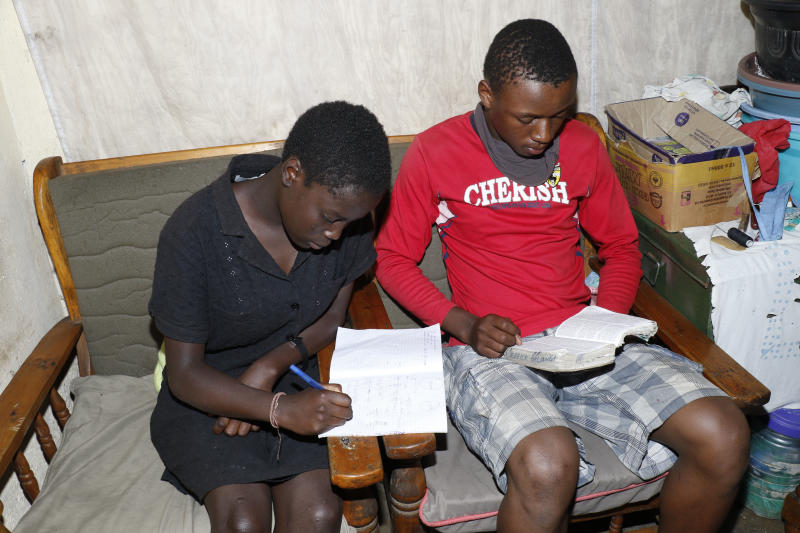×
The Standard e-Paper
Smart Minds Choose Us

As Vivian Chepkirui stares at her book, her little mind seems lost in the moment. A candidate, her books are all she has to keep learning as schools are closed due to the Covid-19 pandemic.
Outside, her siblings and their friends are playing to while the day away, distracting her concentration.